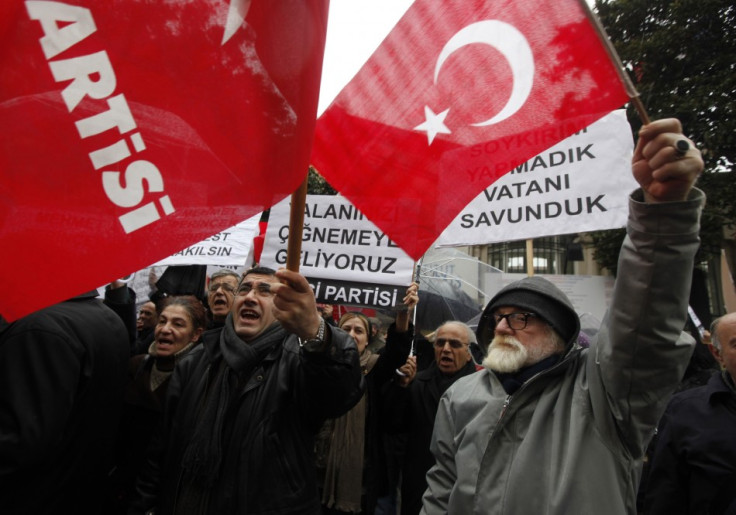Armenian Genocide Bill: France Criticised for Failing to Face its Own Bloody Past

France's bid to criminalise denial of the 1915 Armenian genocide has passed through its first legal hurdle when a large majority in the National Assembly - the lower house of parliament - voted in favour of the bill.
The move has stirred anger in Turkey, where the mass killings took place, and in Algeria, with critics saying the former colonial power should first face its own deadly past before it passes judgment on others.
The bill is now due to be debated and voted upon in the Senate next year. If it passes into law, anyone who publicly denies the genocide faces the prospect of a year in jail and a fine of 45,000 euros (£29,000).
Turkey rejects the term "genocide". While the government's official stance is to acknowledge that a large number of Armenians were killed by Turks during the later stages of the Ottoman Empire, the country insists that the overall estimate of 1.5 million deaths has been inflated.
As it had previously threatened, Ankara responded at once to news of the bill making it through the French lower house by recalling its envoy from France.
A group of protesters also staged a demonstration in front of the French embassy in the Turkish capital, armed with banners that read: "Genocide master imperialist France", "What were you doing in Algeria?", "What were you doing in Rwanda?" and "Liar Sarkozy".
In Algeria, the outcome of the vote was reported as being hypocritical in view of France's persistant refusal to admit that it waged a war against Algeria during the process of decolonisation, despite 1.5 million predominantly Algerian fatalities from the years 1954-62.
The Algerian war of independence, for decades referred to in France as "the Algerian events", was only officially acknowledged as such by the French government in 1999.
Relations between Paris and Algiers remain strained to this day, however, as the former colonial power never prosecuted any French soldiers who were accused of war crimes, despite historians saying the use of torture was systematic.
© Copyright IBTimes 2025. All rights reserved.





















